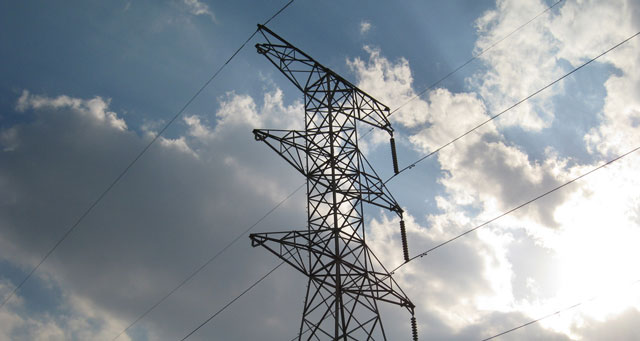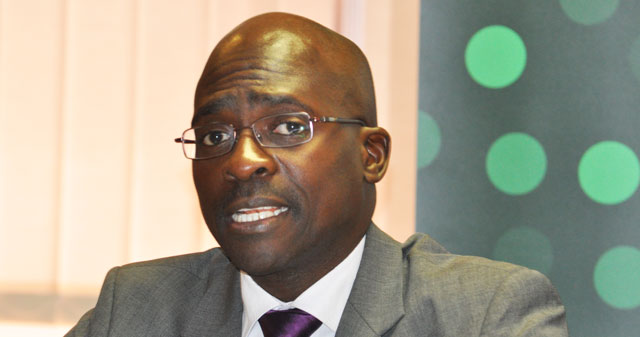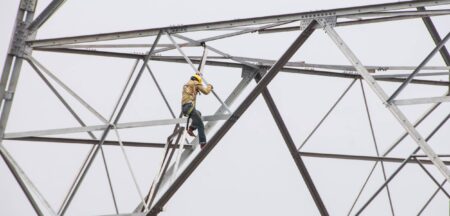
The gap left by Eskom’s erstwhile finance director and head of capital projects, Paul O’Flaherty, looms large as the utility struggles over delays at its Medupi power station amid massive power constraints on the country.
Despite his resignation, which was only officially announced in November but which was reportedly submitted in September, the board has yet to find a replacement for him nearly a year later.
In May, when Eskom and public enterprises minister Malusi Gigaba were still declaiming that Medupi would produce its first power by December, Gigaba told journalists he had written to Eskom’s board requesting that they get O’Flaherty to stay on as the head of capital projects.
The minister invoked patriotism as reason enough for O’Flaherty to consider remaining at the utility.
In the interim, his job has been split into two — that of finance director, filled in an acting capacity by Eskom’s treasurer, Caroline Henry, and that of head of group capital, filled by Dan Marokane, head of technology and commercial.
Eskom’s board chair, Zola Tsotsi, said that, although the board had been discussing the extension of O’Flaherty’s contract, “any negotiations on employment contracts are of a nature which is very private and at this stage it would not be appropriate to divulge details”.
He said the post had been split and the post of finance director was “such that there would be a long lead time for any external candidates who we might consider. The process is at an advanced stage and we should be able to make an announcement shortly on the successful candidate for finance director.”
Cornelis van der Waal, business unit leader for energy and power at the consultancy Frost & Sullivan, said the space filled by O’Flaherty was “such a crucial position” that to rush to fill it would be folly.
He said the utility faced several challenges, including containing rising costs and securing low-cost funding, despite a lower than requested tariff increase.
The utility was granted an 8% tariff increase by the National Energy Regulator earlier this year, half the 16% it requested and its results announced last week revealed the rising cost of primary energy, chiefly coal, which soared from R46,3bn in 2012 to over R60bn, or by 36% per kilowatt-hour of electricity sold.
It also highlighted the funding challenges Eskom faces after the completion of its capital expansion programmes, which includes Medupi’s fellow power station, Kusile.
Another ongoing strain on Eskom’s books is the impact of the special pricing agreements with BHP Billiton’s aluminium smelters, notably its Hillside smelter in Richard’s Bay, according to Chris Yelland, energy analyst and MD of EE Publishers.
According to Eskom’s integrated report, the impact of embedded derivatives relating to these contracts wiped R5,9bn off its profits.
Yelland said that projected forward losses on these contracts had doubled since the same period last year.

According to the report, embedded derivatives’ liabilities rose to R11,5bn from R5,5bn. Yelland also said that the new deadline — the second half of 2014 — for the first power from Medupi was unlikely to be met.
Writing in the Mail & Guardian last week, Yelland said that what Eskom termed the “first synchronisation” of power from Medupi’s unit six with the national grid could take weeks to complete.
Following that, a complex series of tests had to be conducted, typically taking up to six months if all went perfectly, before the unit would begin to produce continuous commercial baseload power.
Battles with major contractors
Eskom’s battles with its major contractors, Alstom and Hitachi, have been widely reported.
Alstom is responsible for the control and instrumentation system and Hitachi for the delivery of the boiler units, and both have had difficulty delivering. Eskom called up Alstom’s performance bond in February.
Eskom took similar action against Hitachi, which Hitachi challenged, and the matter is now going to the supreme court of appeal.
Finding O’Flaherty’s replacement against this backdrop led one industry insider to wonder if he was leaving behind a poisoned chalice.
The spokesperson for Gigaba, Mayihlome Tshwete, said decisions had been taken to “mitigate risks” while the board worked to find a replacement, among them the move to split O’Flaherty’s previous role.
“The focus for the board, the department and everyone is to finish Medupi as soon as possible,” he said.
The minister had appointed a consultancy group, Acorn Consulting, to assess the challenges of the project, although it would be wider than just Medupi, Tshwete said.
The consultants would assess the project and engineering management capabilities and recommend any structural improvements that might be required as well as determining the full extent of the risks to the building programme. Their first response was expected “within a couple of months”, Tshwete said.
Labour troubles
The labour troubles that beset Eskom’s Medupi construction site earlier this year — and contributed to the delay in bringing the power station online — have settled down somewhat.
But Eskom this week lodged a dispute with the Commission for Conciliation, Mediation & Arbitration after wage negotiations with its unions, including the National Union of Metalworkers (Numsa), the National Union of Mineworkers (NUM) and Solidarity, reached a stalemate.
Eskom has offered a 5,6% wage increase, which is the maximum granted to it by the National Energy Regulator of South Africa, spokesperson Hilary Joffe said.
Protests took place at three of its power stations this week, but by Wednesday all workers had gone back to work, she said.
Eskom’s offer spat “in the face of workers”, said Numsa national sector co-ordinator for basic metals and energy, Stephen Nhlapo.
Eskom is deemed an essential service and workers are prohibited from striking. Instead, they must participate in compulsory arbitration if wage talks break down.
Nhlapo warned, however, that the union would “jealously defend” its right to strike.
Among its demands, Numsa listed a R3 000 increase across the board; a R5 000 housing allowance; and a collective bargaining agreement covering a year instead of the five years Eskom is seeking.
Frans Baleni, the NUM’s general secretary, condemned Eskom’s actions and said the union rejected Eskom’s “packaged deal” and multi-year wage agreement.
Solidarity, meanwhile, said it was “concerned” Eskom had opted to file a dispute as unions had been willing to continue negotiations.
“The union is seeking a 12% increase for its members and is “still more than willing to negotiate with Eskom”. — (c) 2013 Mail & Guardian
- Visit the Mail & Guardian Online, the smart news source




